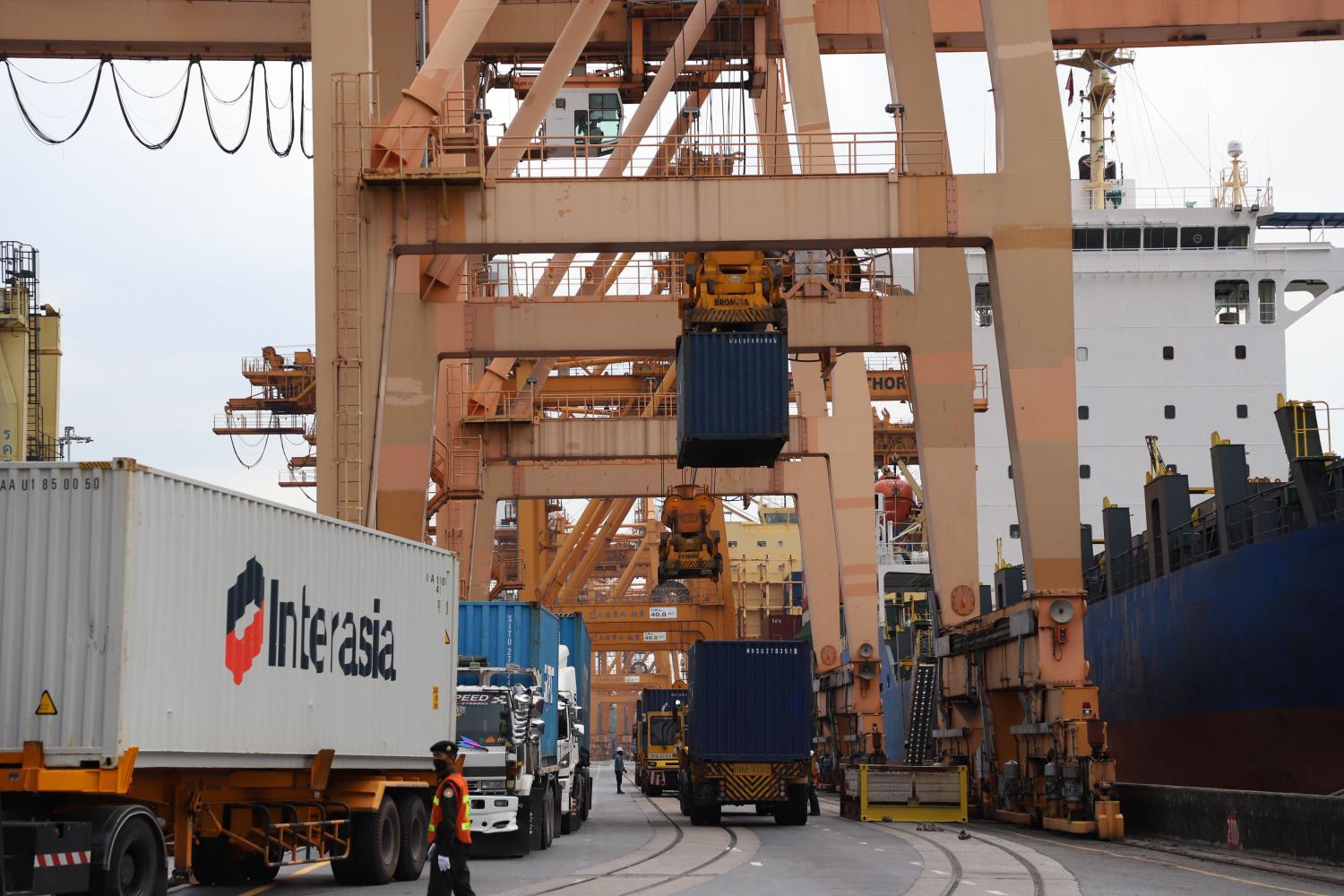
Thai exports are forecast to grow by 6-6.5% in 2022, missing the target estimate of 7-8%, as global demand slowed in the final quarter, says the national shipping trade group.
Chaichan Chareonsuk, chairman of the Thai National Shippers' Council (TNSC), said yesterday that the value of Thai shipments in the fourth quarter of 2022 was expected to contract by as much as 6% from the same quarter a year earlier.
Exports were forecast to remain in the red in December, falling by 7.5% year-on-year from the same month in 2021.
The Commerce Ministry reported on Dec 27 last year that exports dropped for a second straight month in November, blaming the global economic slowdown and China's lockdown measures.
The customs-cleared value of exports contracted by 6% year-on-year in November to US$22.3 billion, after a 4.4% year-on-year drop in October.
Imports increased by 5.6% to $23.6 billion, resulting in a trade deficit of $1.34 billion.
For the first 11 months of 2022, exports expanded by 7.6% to $265 billion while imports rose by 16.3% to $280 billion, resulting in a trade deficit of $15 billion.
According to Mr Chaichan, the council expects Thai exports to continue to post low growth this year, with the key risk factors including global economic uncertainties, volatile foreign exchange, and slowing global demand, as reflected by the global Purchasing Managers Index (PMI) which has been below 50 for three consecutive months, as well as existing geopolitical conflicts.
The council expects the country's outbound shipments to grow by 1-3% this year.
Aat Pisanwanich, director of the Centre for International Trade Studies at the University of the Thai Chamber of Commerce, said Thai exports in 2023 could grow by only 1% to around $295 billion, the lowest growth rate in three years.
He said risk factors remained abundant, including a global economic slowdown, the protracted Russia-Ukraine war, relatively high energy prices, rising raw material costs, high inflation, and expected increases in US interest rates.
Mr Aat expects Thai exports in the first quarter of 2023 to contract by 1.8-3.4% year-on-year because of slowing purchase orders from key trading partners.
He said issues to monitor include China's easing of its strict zero-Covid policies, the baht's dramatic fluctuations, and rising health, environment and society-related trade measures.
In a related development, Poonpong Naiyanapakorn, director-general of the Trade Policy and Strategy Office, said the latest study by the office found that the Chinese reopening on Jan 8 is expected to benefit Thai exports bound for China, especially for fruit, food, beverages, and fashion products.
Shipments of medical and healthcare products also have promising prospects, he said.